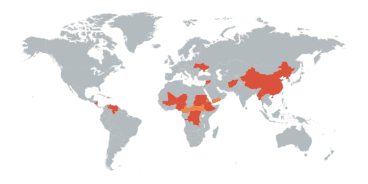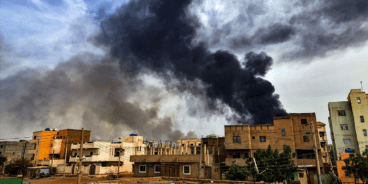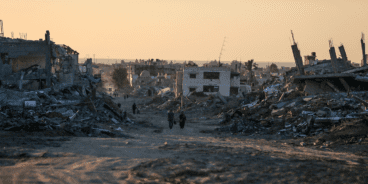1.5 Years After the Peace Agreement, Famine and Atrocities Threaten South Sudan
More than a year and a half after the signing of the Agreement on the Resolution of the Conflict in the Republic of South Sudan, it is time for the international community to recognize that the peace process has failed. Recent months have seen renewed military offensives by the Sudan People’s Liberation Army (SPLA), South Sudan’s official armed forces, resulting in thousands of civilians being displaced. In a conflict where both pro and anti-government militias are also proliferating, civilians continue to be targeted and killed by all sides because of their ethnic identity and perceived political loyalties.
The August 2015 Peace Agreement was supposed to end the civil war that started in December 2013. Mediated by the African Union (AU) and the regional Intergovernmental Authority on Development (IGAD), the Agreement is now effectively defunct. None of the Agreement’s main components have been implemented: the Transitional Government of National Unity exists in name only; there is no permanent ceasefire; and the Hybrid Court has not been established to investigate and prosecute those responsible for mass atrocities committed during the civil war.
President Salva Kiir has announced the commencement of a national dialogue, but the SPLA and pro-government militias continue to wage war against a range of perceived political and ethnic enemies. Meanwhile rebel forces nominally loyal to former Vice President Riek Machar, who has been forced into exile in South Africa, continue to fragment, complicating the chances of a lasting ceasefire.
No one knows exactly how many civilians have died during fighting that has taken place since January in Eastern Equatoria, Central Equatoria, Western Bahr el-Ghazal, Upper Nile and Unity states. At least 1.9 million civilians are internally displaced and another 1.6 million have sought refuge in neighboring countries. About 220,000 civilians have fled to UN peacekeeping bases for protection. Since the end of April an additional 25,000 people have fled from Kodok after intense fighting between the SPLA and the Agwelek Forces, a rebel splinter group.
The intensification of armed violence has resulted in people being cut off from their livelihoods. The government of South Sudan has denied aid to civilians in rebel-held areas and over 40 per cent of the population is severely food insecure. During February the World Food Program and other UN agencies declared a famine in Leer and Mayendit counties. An estimated 100,000 people are already facing starvation and an additional 5.5 million people are at risk of famine unless urgent measures are taken.
Although South Sudan remains one of the poorest and under-developed countries in the world, the government continues to spend a large part of its national budget on arms. Senior SPLA military commanders are also implicated in possible war crimes and crimes against humanity committed by their troops and/or allied militias. Rebel forces, who lack the military capacity of the SPLA, routinely pillage and prey upon civilian populations. Both sides have also targeted humanitarian workers, with 82 having been killed since December 2013.
In order to avoid further atrocities and avert a catastrophic famine, the UN Security Council (UNSC), AU and IGAD need to recalibrate their approach to endemic conflict in South Sudan. In particular, we urge the following measures:
- The AU and UNSC should set clear accountability benchmarks, including a strict timeline for the expeditious establishment of the Hybrid Court.
- The UNSC should impose an arms embargo on South Sudan and extend targeted sanctions by including key military figures who are actively obstructing peace and/or have command and control over those responsible for targeting and killing civilians.
- The AU, UNSC and IGAD must compel the government and armed rebels to allow unhindered humanitarian access to vulnerable populations and ensure their safety. Attacks on humanitarian workers constitute possible war crimes and should be thoroughly and impartially investigated. Perpetrators must be held accountable regardless of their position or affiliation.
The government and the armed opposition have manifestly failed to uphold their responsibility to protect the people of South Sudan. The time has come for the international community to hold perpetrators accountable for the misery they have inflicted upon their country and the deadly conflict they continue to wage without justification or remorse.
Read Next
Related Publications

R2P Monitor, Issue 69, 1 June 2024

